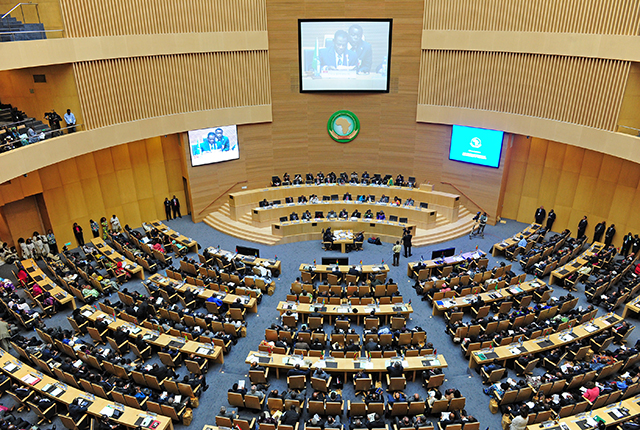Friendship benches: Making depression lighter

 Leroy Dzenga Features Writer —
Leroy Dzenga Features Writer —
In the Zimbabwean culture, conversations with the elderly were seen as the first step towards problem solving. However, recent times have seen some preferring Western methods of maintaining health and well-being.
Responding to growing mental health challenges, a local doctor decided to draw inspiration from the traditional way of doing things bringing back the dialogue aspect.
Dr Dixon Chibanda, a Harare based psychiatrist started “The Friendship bench project” meant to help curb depression in the country through talking over problems with keen listeners.
“The Friendship bench is a simple innovative task shifting intervention aimed at truly reducing the treatment gap for mental neurological and substance use disorders in Zimbabwe,” he said.
What sets out the project from other initiatives is the social angle it takes — different from conventional therapy which usually happens in a professional environment.
“The Friendship benches project has been running since 2006. I started it in Mbare at Edith Opperman Clinic, Matapi and Hostels clinics. It then grew from there,” said Dr Chibanda.
He was alerted to the high rate of mental disorders when he did a survey in local institutions in the mid-2000s.
“The concept was developed in response to the high rate of common mental disorders such as depression, and anxiety disorders among people using the local clinics,” he said.
He observed the high rates, when he did a study in Harare clinic as he read for his Masters’ Degree in Public Health in 2005.
Seeing the need for intervention, Dr Chibanda came up with a plan to use already existing personnel to help in solving the problem.
“The idea of using community health workers also referred to as Mbuya Utano to provide an evidence-based intervention, was the only option available.
Clinic nurses were already over-burdened with a lot of other critical responsibilities,” Dr Chibanda said.
The Friendship bench project uses a technique crafted specifically to help locals battling depression and anxiety.
“Friendship benches use a techniques called problem solving therapy (PST) which is linked to a broader psychological approach referred to as cognitive behaviour therapy (CBT),” said Dr Chibanda.
Community health workers undergo training to be able to give lucid assistance to patients.
“We train lay health workers or community health workers in the basics of CBT and PST over a four week period.
We prioritise three key components: kuvhura pfungwa (opening the mind); Kusimudzira (uplifting); kusimbisa (strengthening) and kusimbisisa (strengthening further),” he said.
The components, developed over a 10-year period are rooted in an understanding of local concepts of distress. Thousands have received assistance through the project.
“To date, since June 2016 over 25 000 people have received care through the Friendship bench but there is still room for us to strengthen our referral pathways and supervision of the lay health workers,” Dr Chibanda said.
Dr Chibanda says all lay health workers who work for the city health department, have been trained to offer help to distressed patients. While their operations have been centred in the capital, expansion efforts have commenced.
“We have successfully expanded to Chitungwiza and Gweru. We are looking into going to Bulawayo and Mutare,” Dr Chibanda said.
He added that people from as far as Ghana and Ecuador have made requests for the Friendship benches.
“We have had requests from countries like Ghana and Ecuador, but we have to first strengthen what we are providing locally before we can venture outside Zimbabwe,” he said.
Unfortunately, in African societies problems, like depression are not usually deemed to be legitimate health challenges.
“The entire African continent has very high rates of mental, neurological and substance use disorders.
For instance in South Africa rates of post natal depression are pegged at just over percent and in Zimbabwe it’s 33 percent,” Dr Chibanda said.
He added; “Among people living with HIV these rates tend to be much higher throughout Africa with some studies in Zambia for instance showing rates of over 50 percent.”
According to the World Health Organisation, “Depression is a common mental disorder, characterised by sadness, loss of interest or pleasure, feelings of guilt or low self-worth, disturbed sleep or appetite, feelings of tiredness, and poor concentration.”
“Depression can be long-lasting or recurrent, substantially impairing an individual’s ability to function at work or school or cope with daily life. At its most severe, depression can lead to suicide.”
It can be diagnosed and treated by non-specialists as part of primary health care. Specialist care is needed for a small proportion of individuals with complicated depression or those who do not respond to first-line treatments.
Depression is caused by an array of factors which include unfavourable life events such as bereavement, unemployment and traumatic experiences. The World Health Organisation says there are two main types of depression. Recurrent depressive disorder which involves repeated depressive episodes.
During these episodes, the person experiences depressed mood, loss of interest and enjoyment, and reduced energy leading to diminished activity for at least two weeks.
Then there is which typically consists of both manic and depressive episodes separated by periods of normal mood. Manic episodes involve elevated or irritable mood, over-activity, pressure of speech, inflated self-esteem and a decreased need for sleep.
A journal on Zimbabwean mental health by The Central African Journal of Medicine in 2015 attributed childbirth as a major driver for depression in the country.
“Postnatal depression is a common complication of childbearing with a prevalence of 33 percent in Zimbabwe.
Thus Zimbabwe has one of the highest prevalence of postnatal depression in the world and the situation is further compounded by the fact the country also ranks among those with the highest HIV prevalence globally,” read the journal.
The journal further states that a research conducted in 1995 was at 16 percent, signalling a more than a 100 percent increase in women with postnatal depression in about twenty years.
Social media has also emerged as a cause of depression. According to an article on health website, www.health.com, time spent on social media may present anxiety and depression due to standards set on the sites.
“People who spend too much time on social media may feel they are not living up to the idealised portraits of life that other people tend to present in their profiles,” reads the article.
This new phenomenon has been called Facebook depression. With the adverse effects brought by unattended depression cases, more projects should emerge in response.
What is usually brushed away as evil spirits or wayward behaviour in societies could be depression.
Feedback: [email protected]







Comments